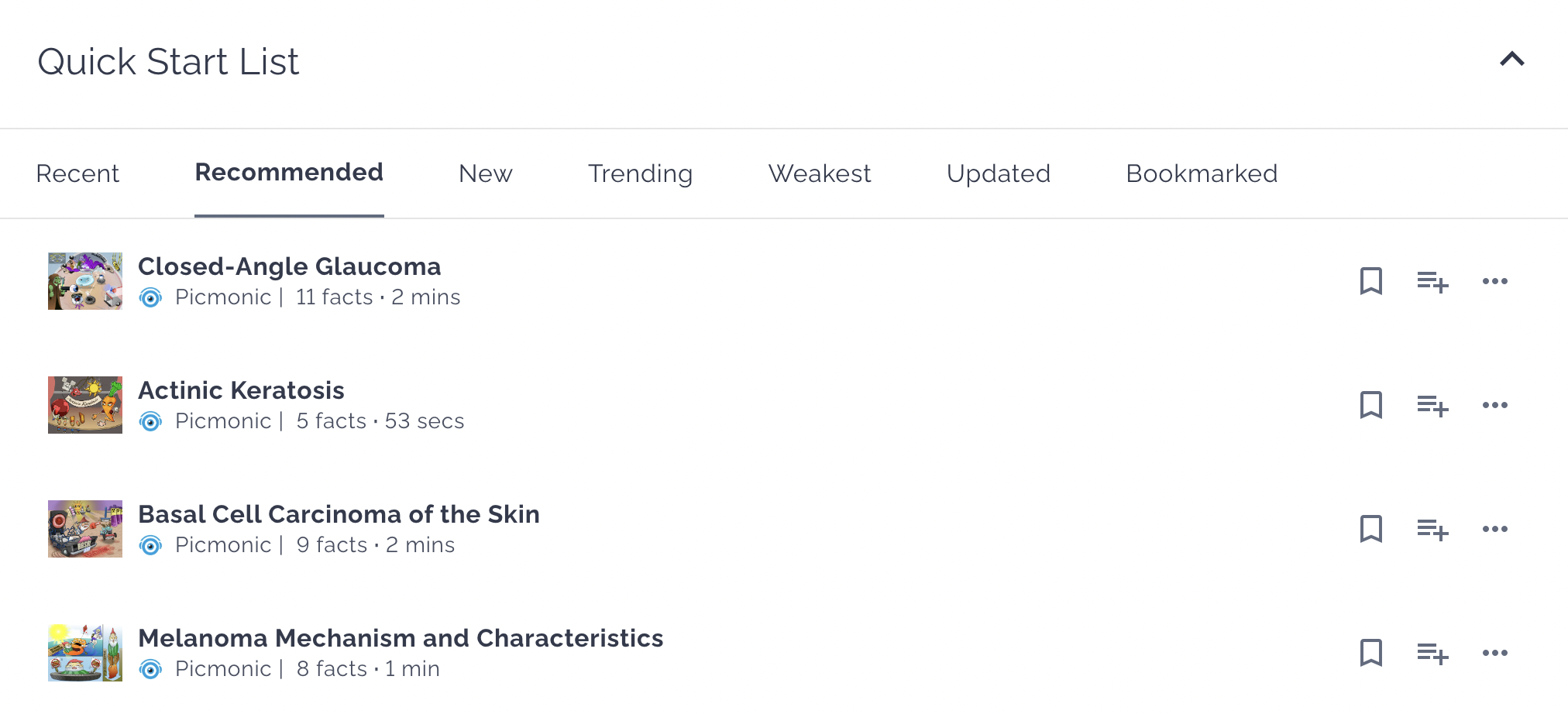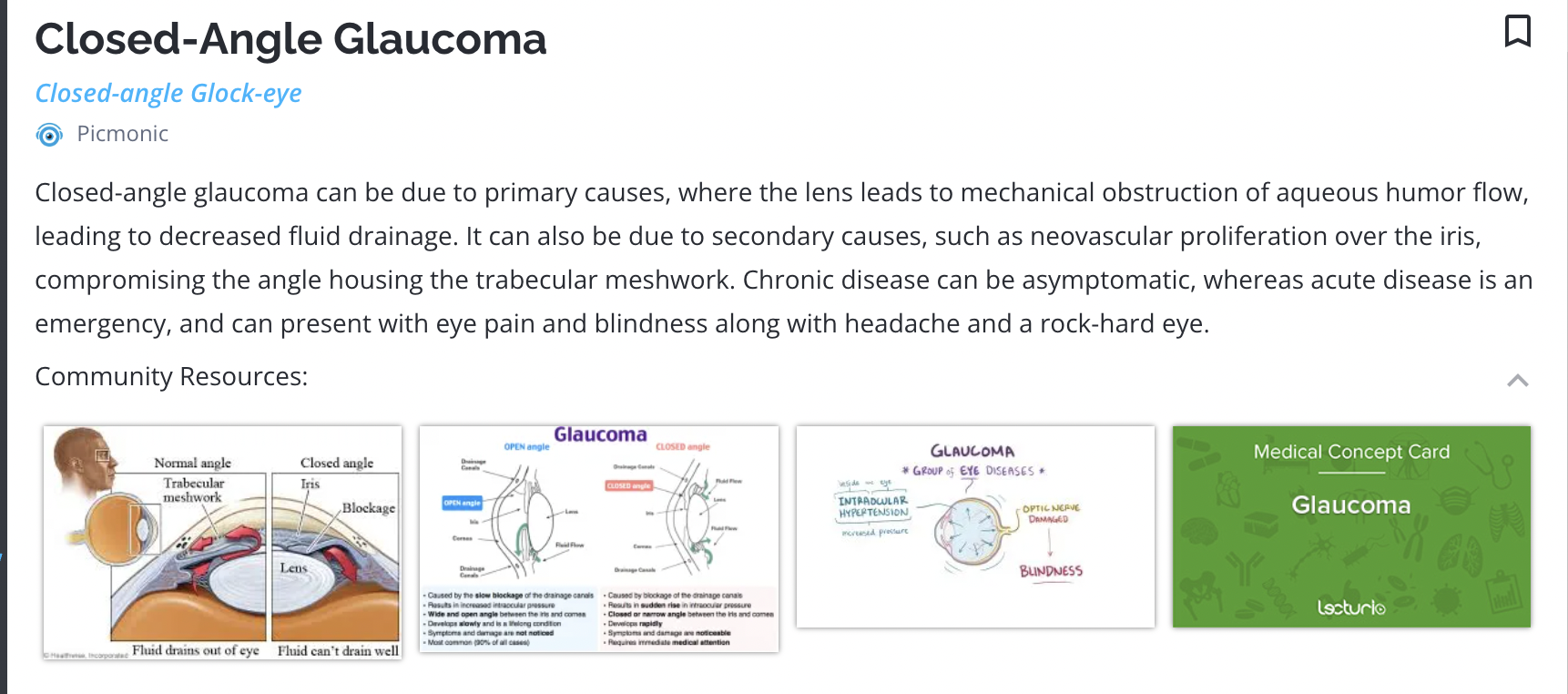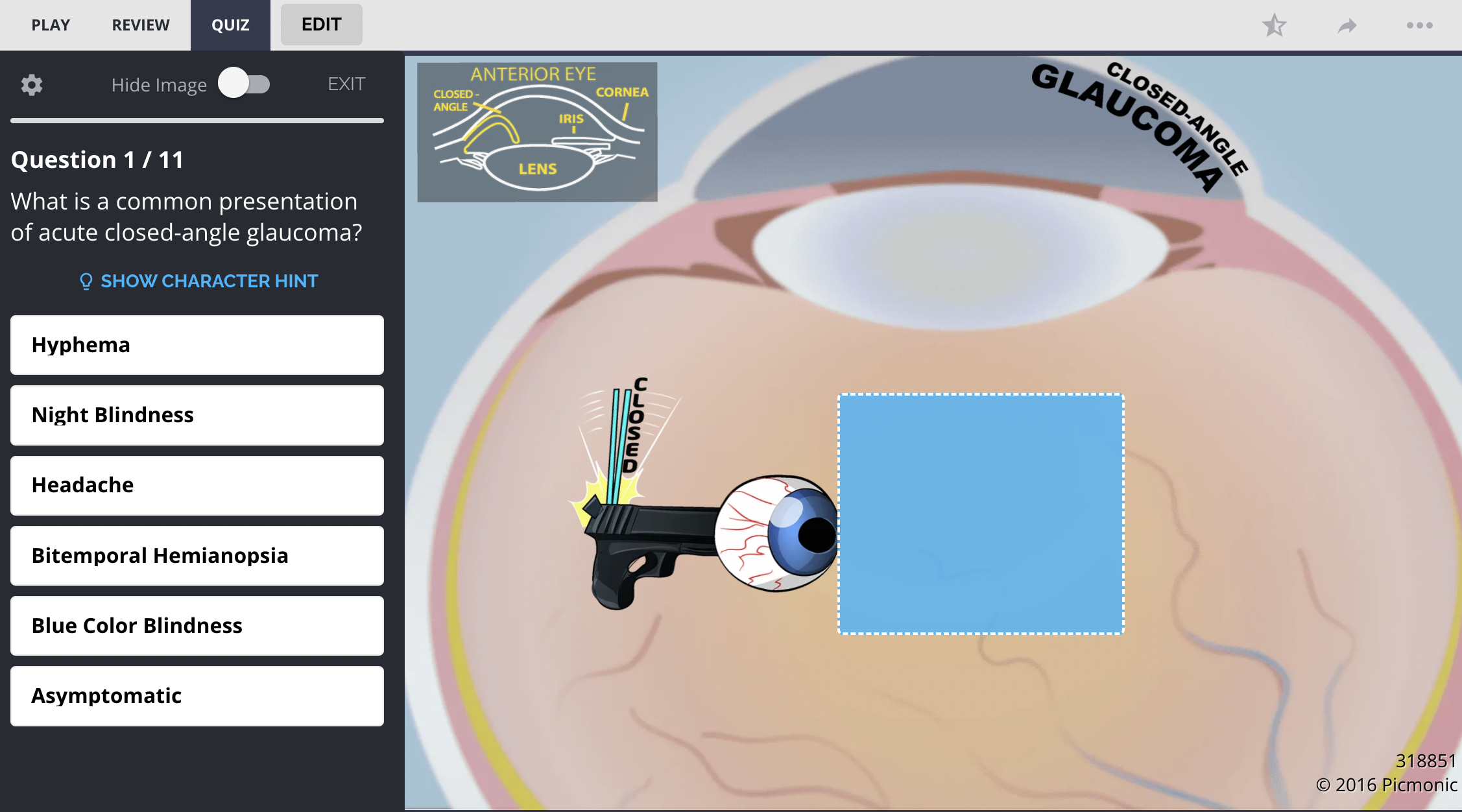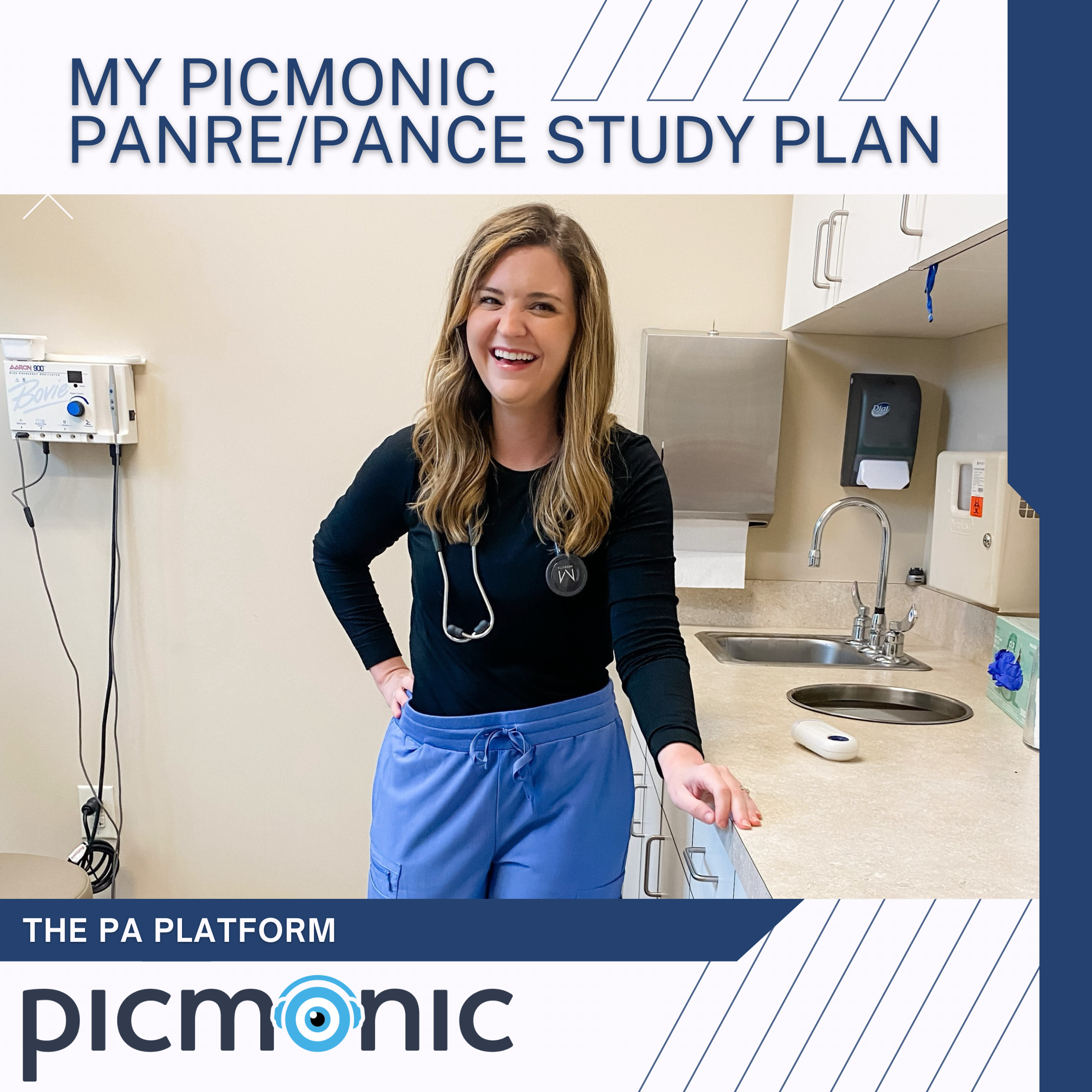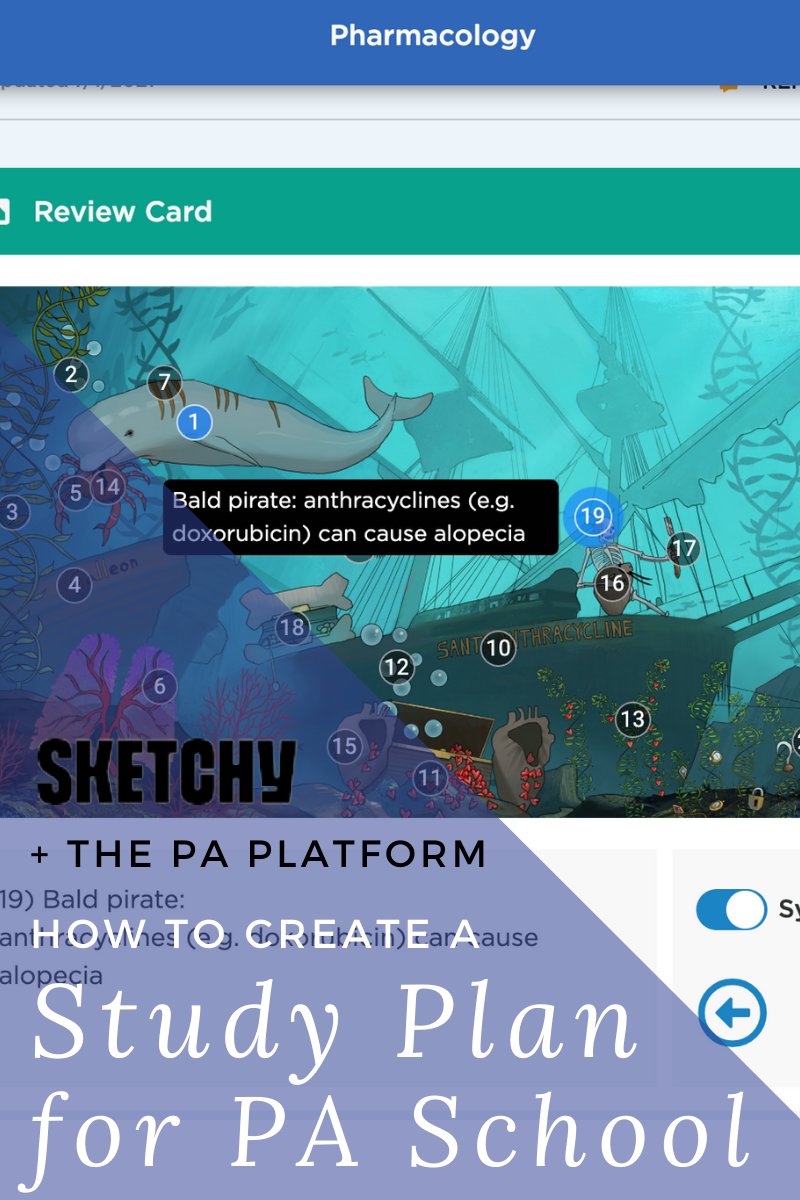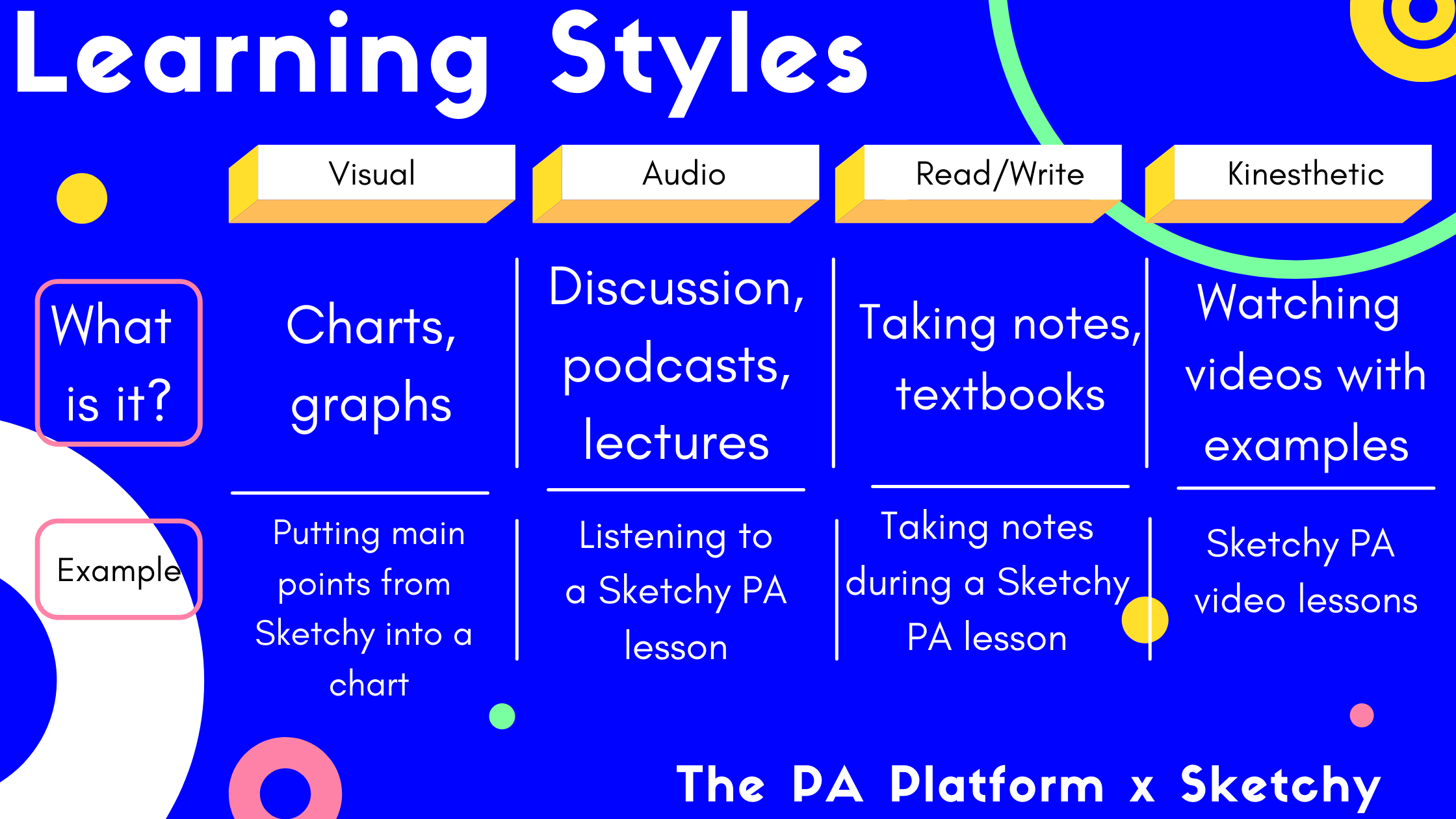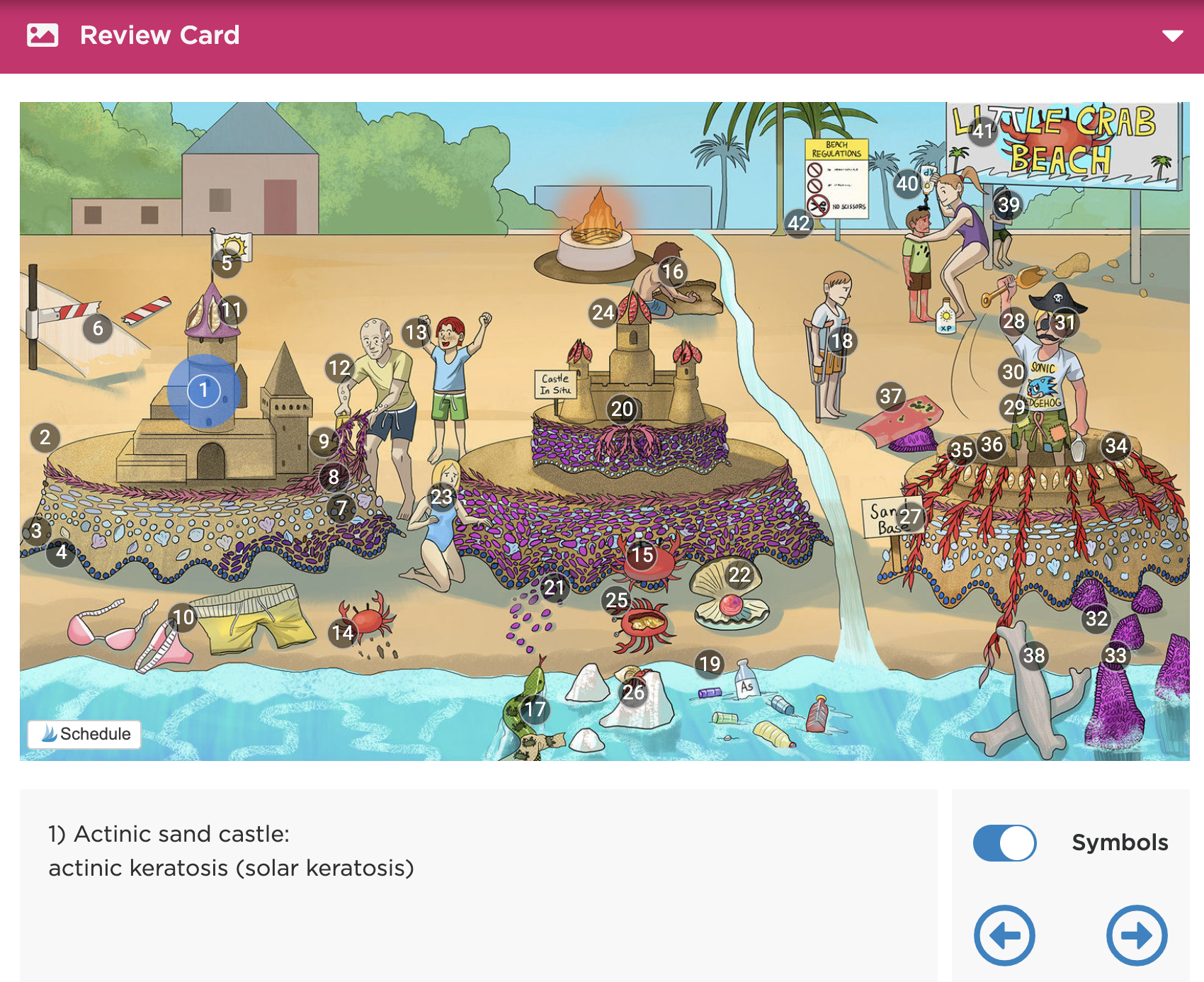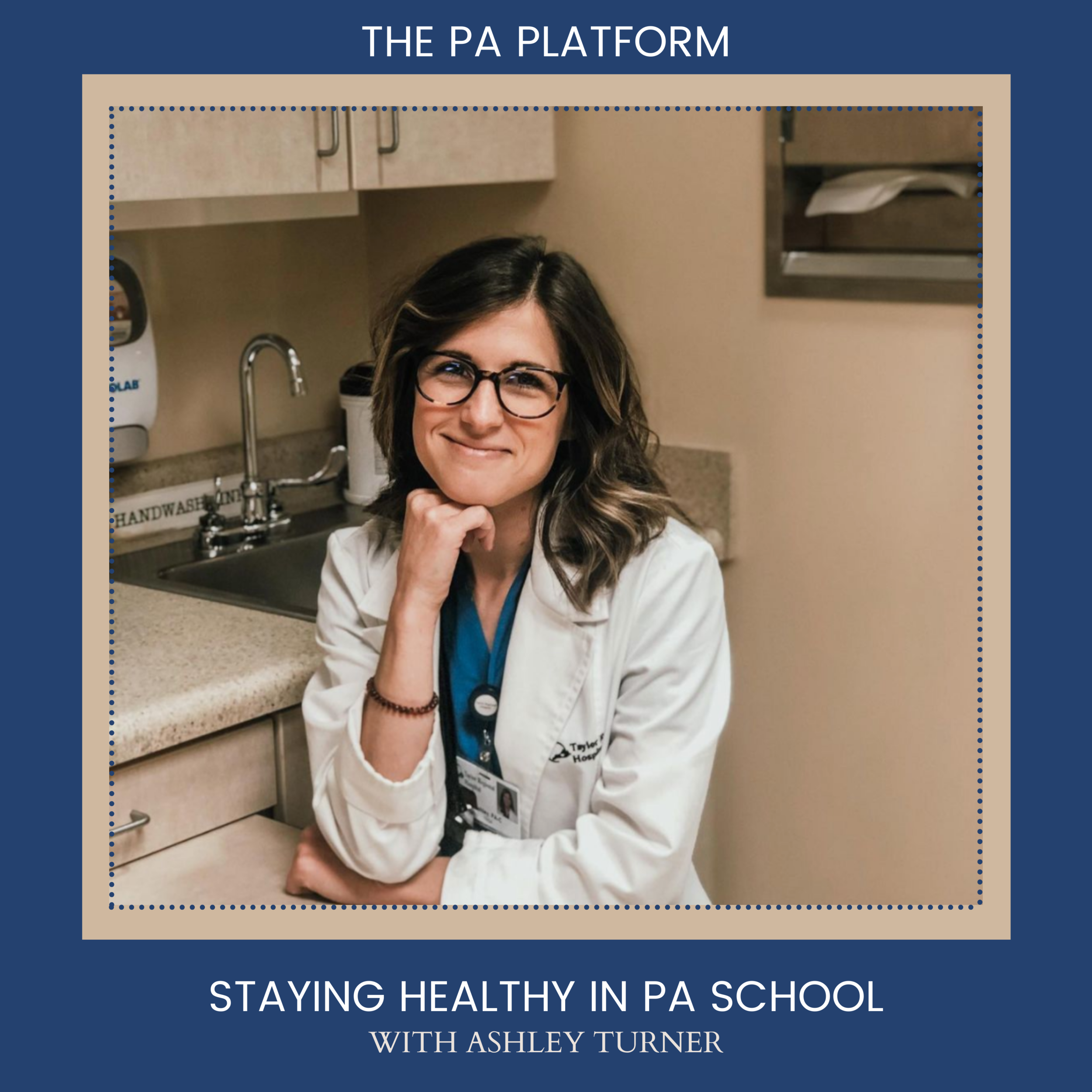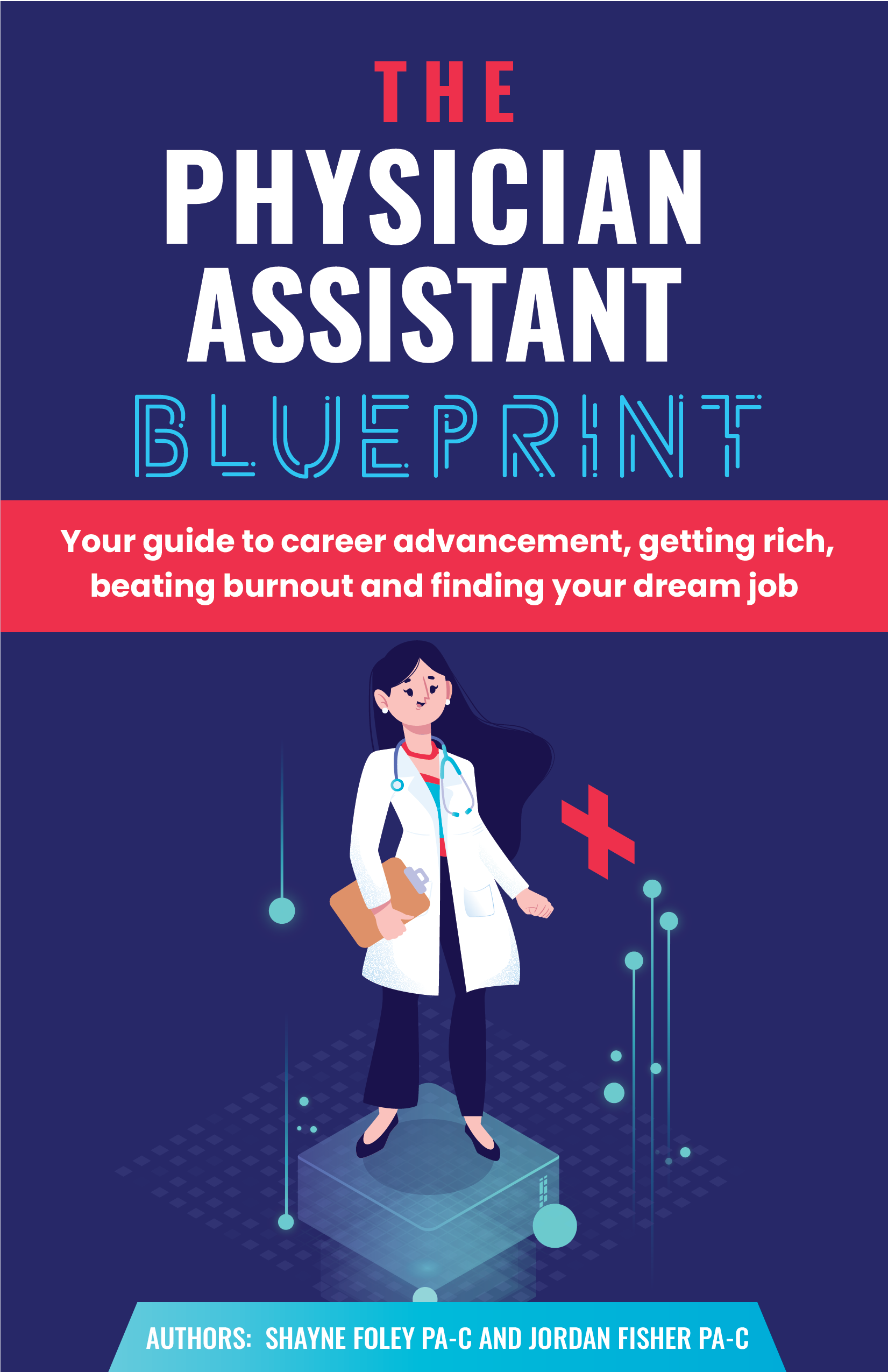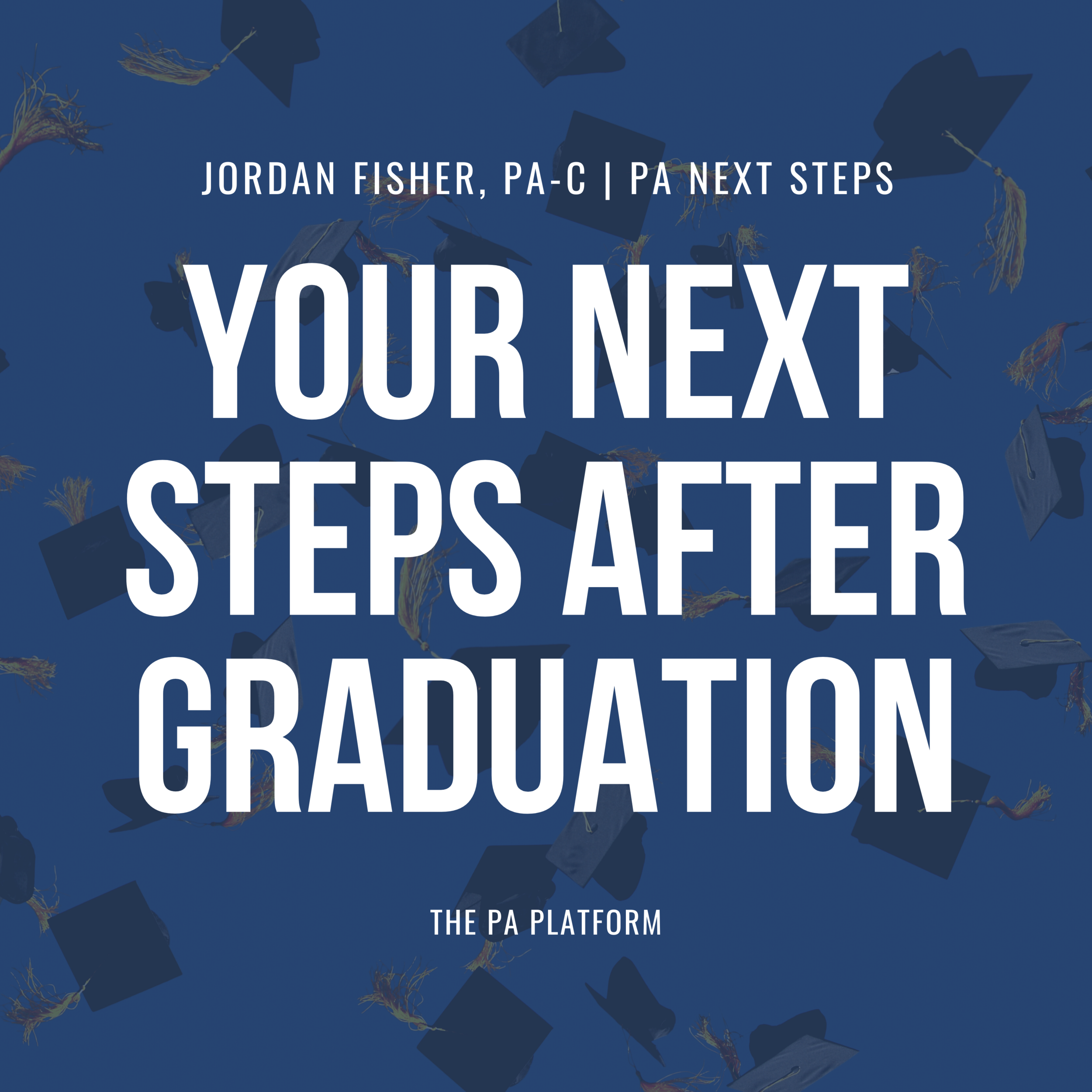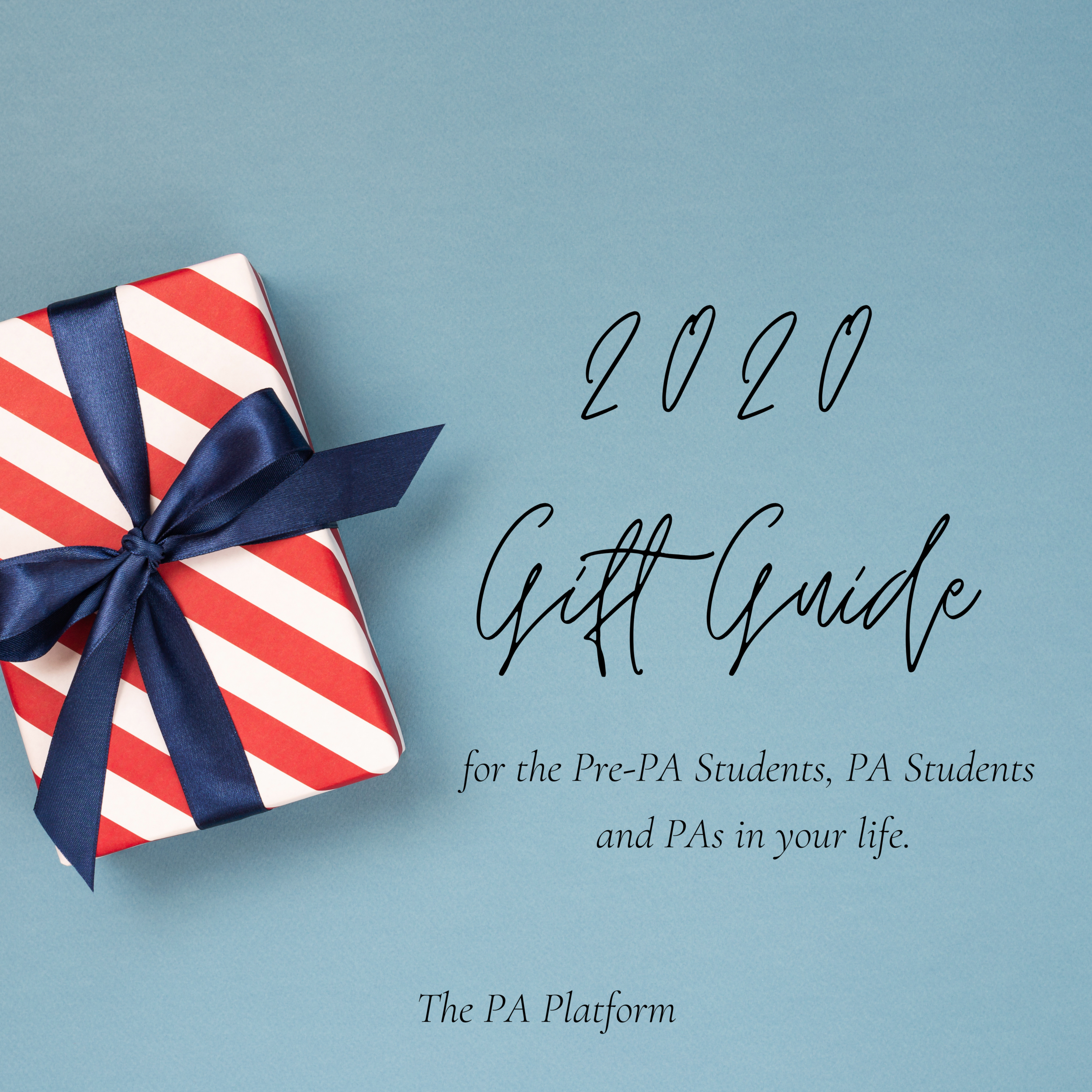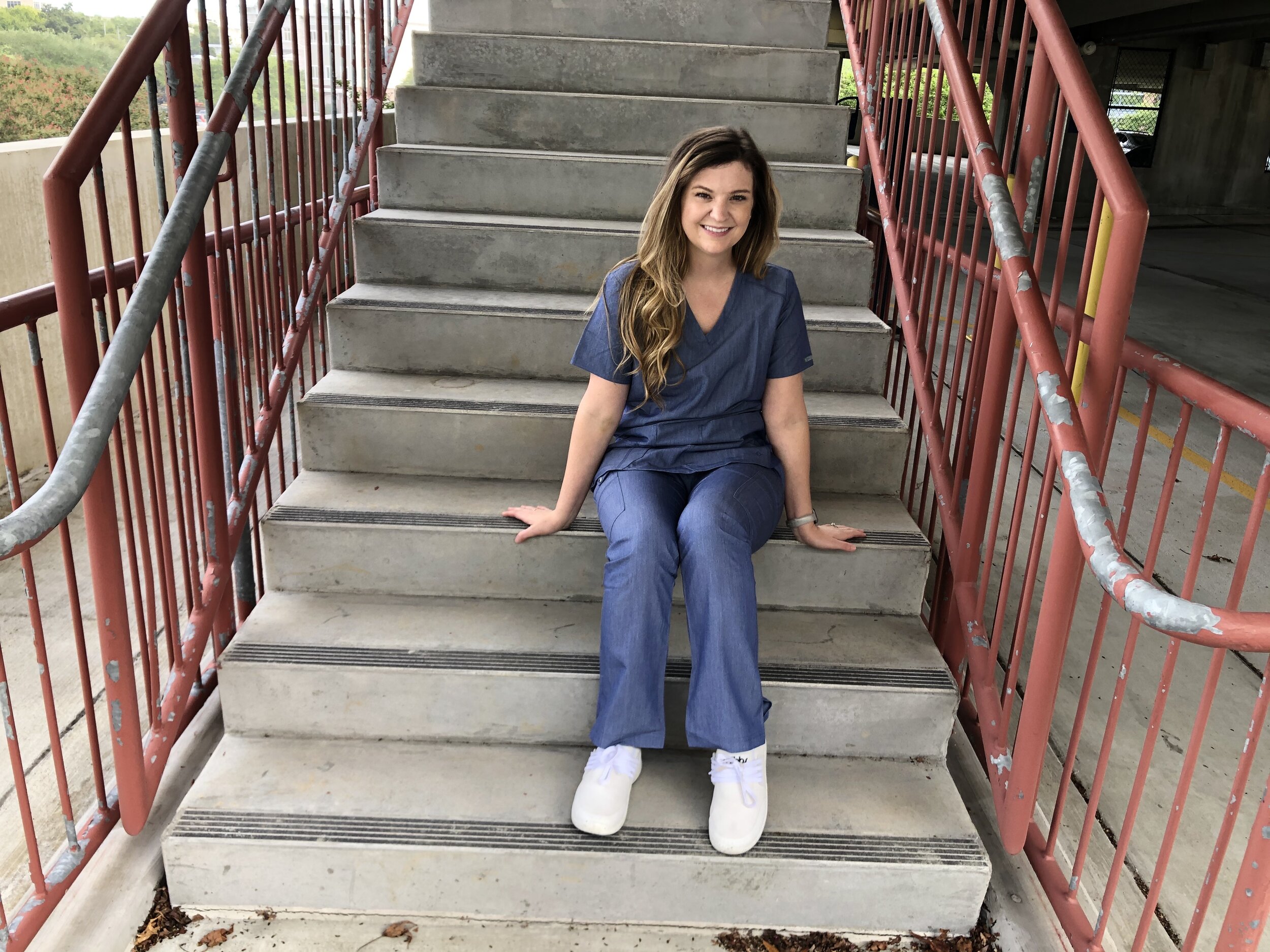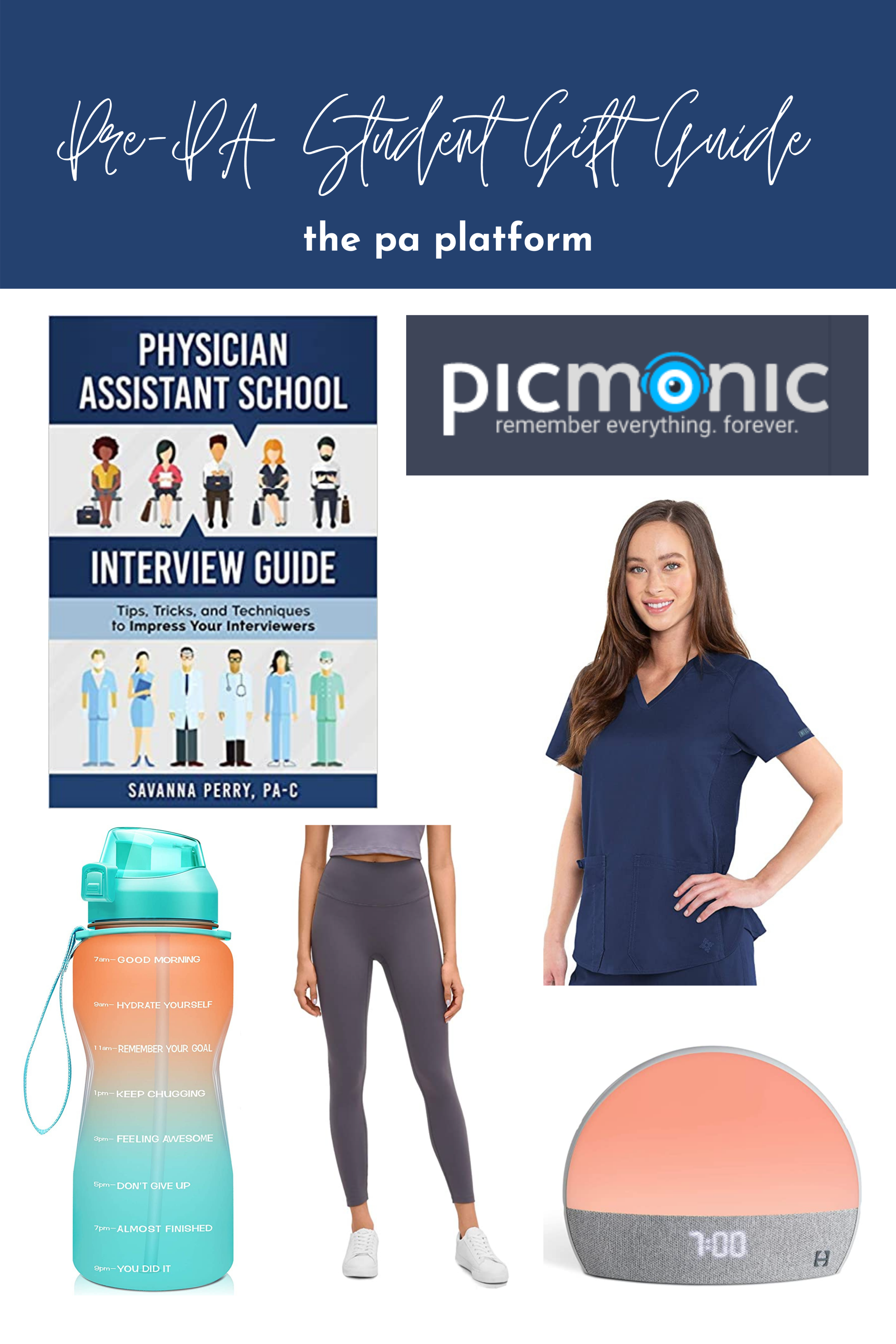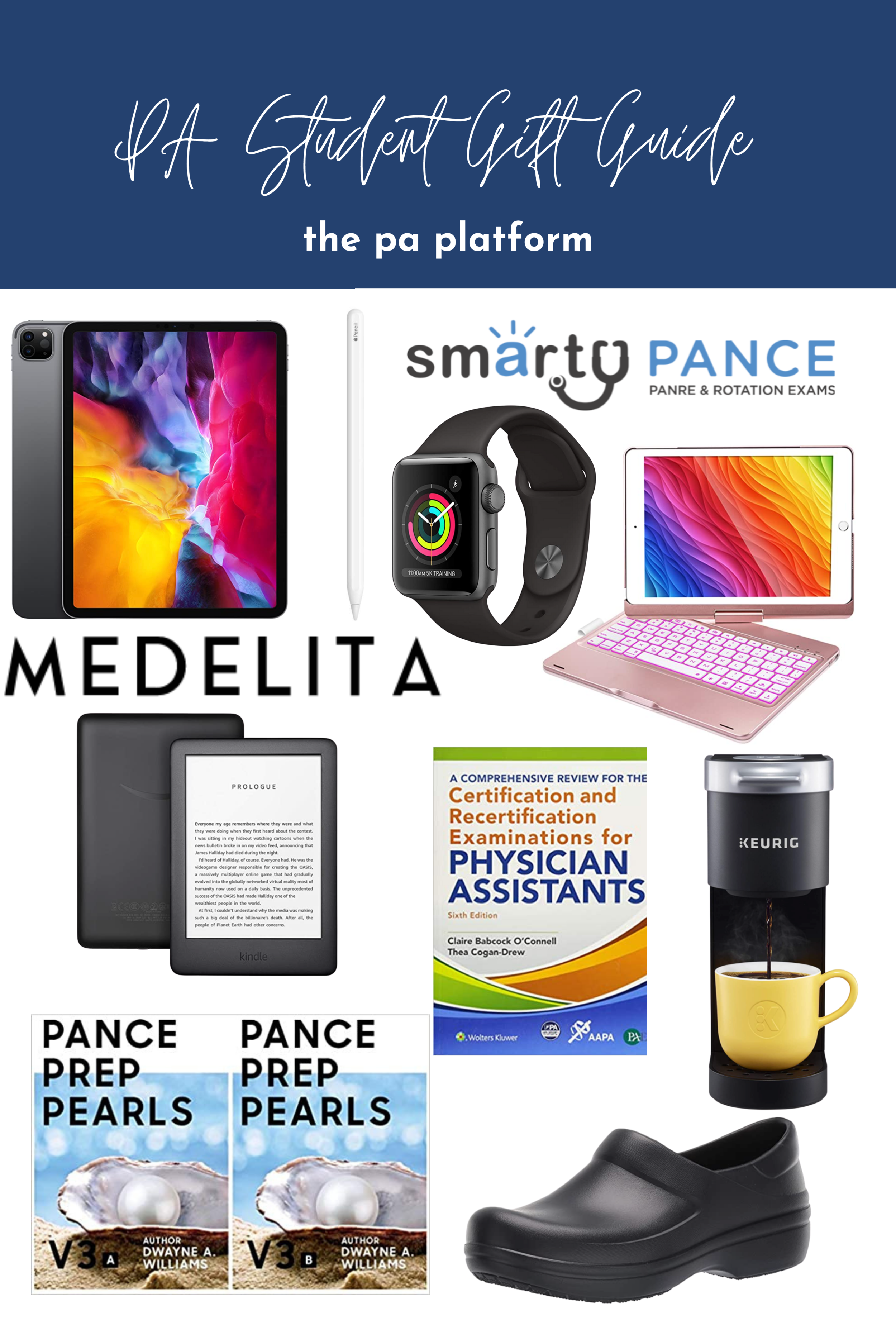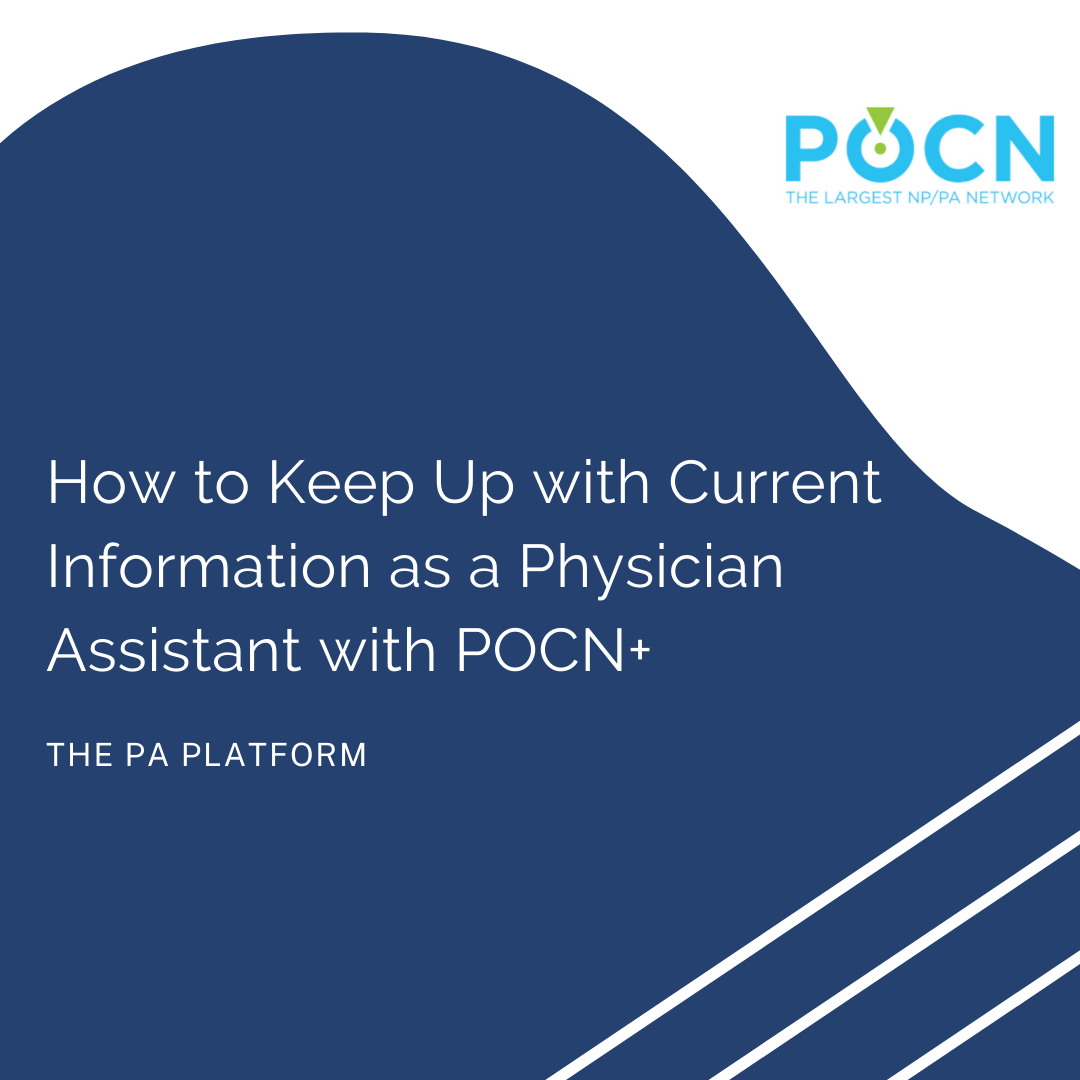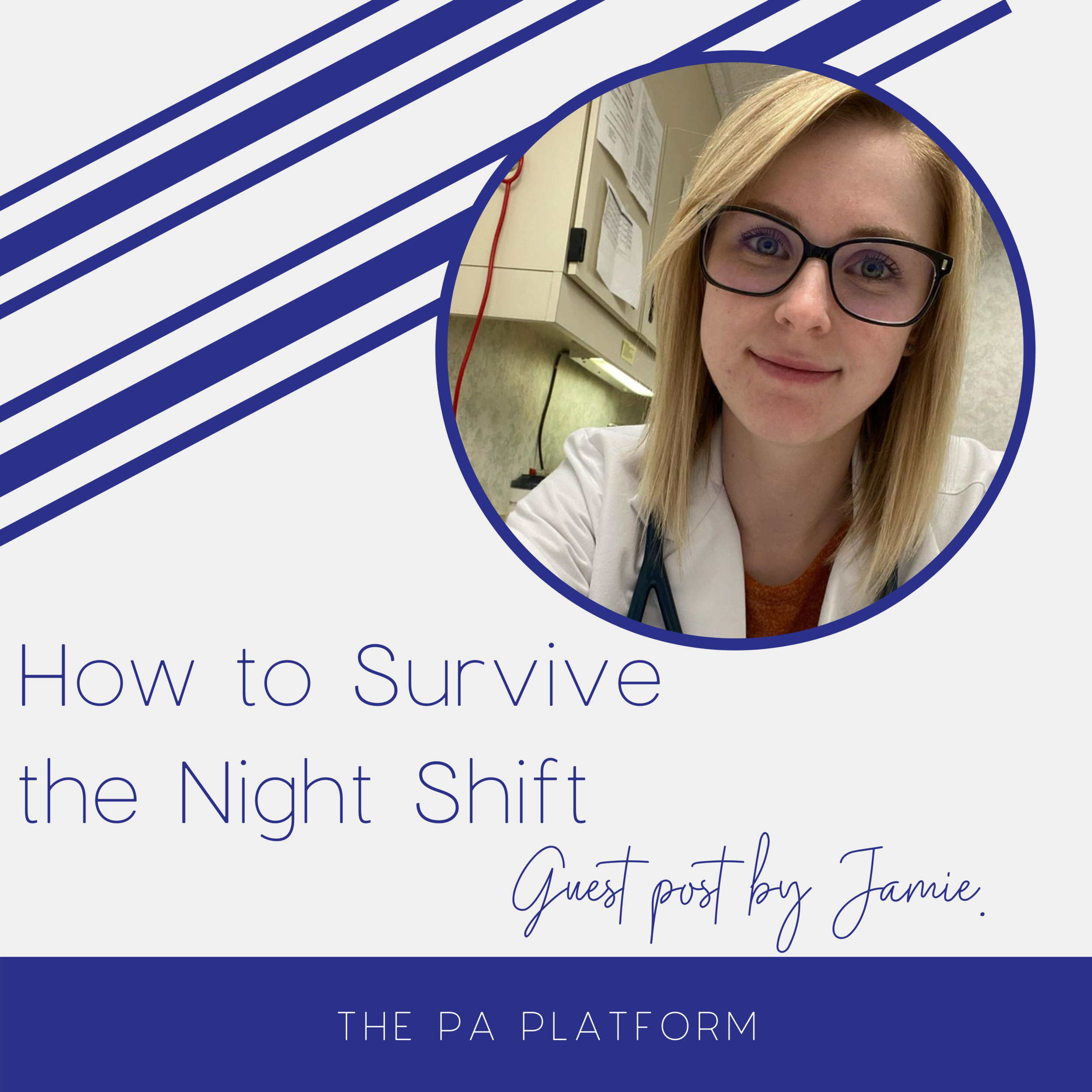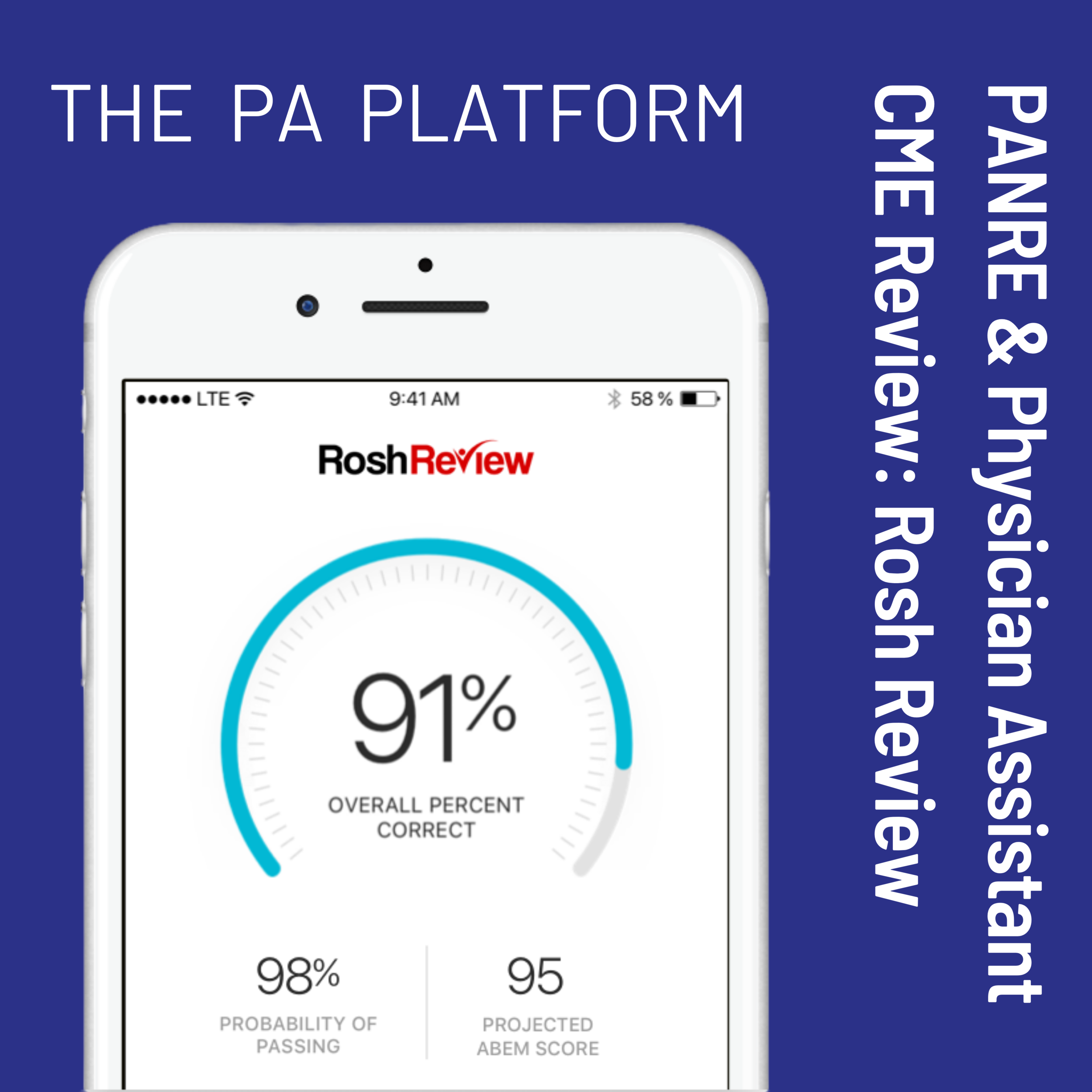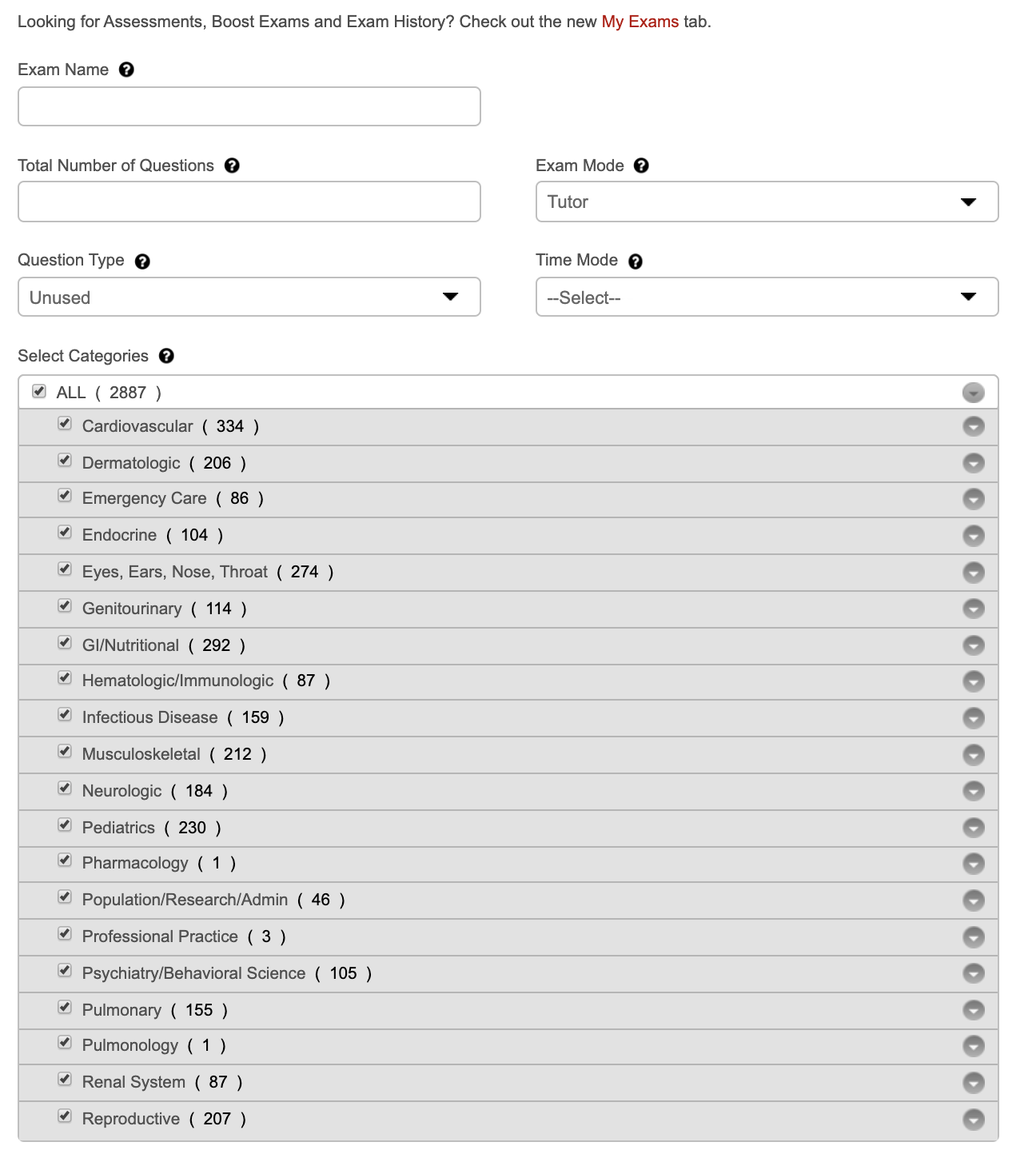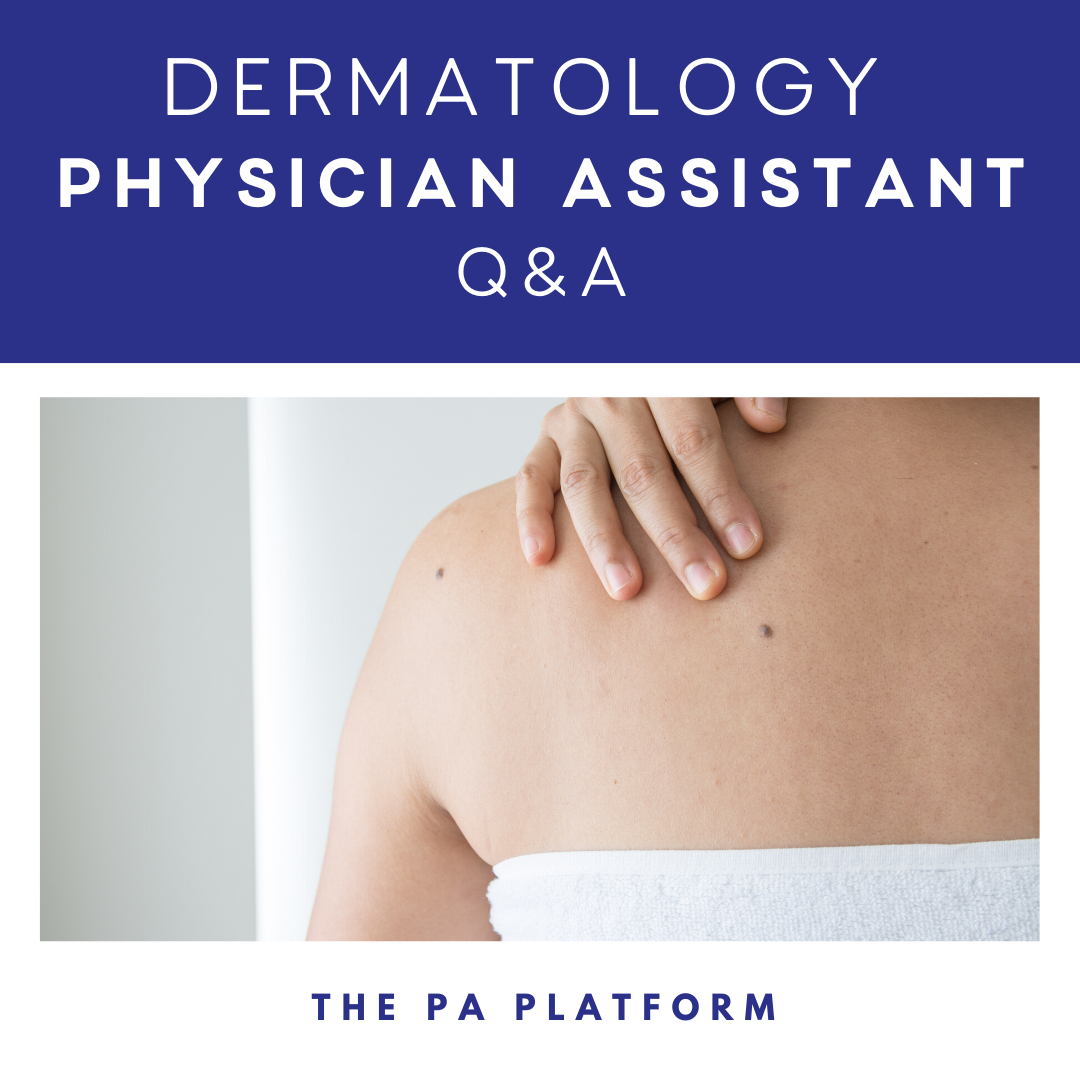This post is a transcription from an episode of The Pre-PA Club Podcast. Listen to the episode here: https://www.thepaplatform.com/podcast/gi-bill-for-pa-school
Travis: Hi everyone. My name is Travis Laverne. I’m a second year PA student at Drexel University. I'm currently in clinical rotations; my 5th clinical rotation is in OB/GYN. I'm also currently the class president for our class as well.
Savanna: We'll definitely get to that because I have my personal thoughts on being an officer in your class. But first what kind of brought you to the PA profession? Give us a little bit about your background.
Travis: Yeah, so it was pretty non-traditional. I was in the U.S. Air Force active duty for 13 years before I started PA school. I had always kind of had an interest in medicine. I thought was really cool. I’ve always been attracted to the high-tempo type of careers, a lot of responsibility. I do really well under pressure. That side of medicine always interested me, but I just was kind of a knucklehead in high school and didn't have the patience to kind of get through school. So I went the military route and I loved it. It was really high speed; I traveled the world. I was exposed to a lot of PAs in the military, because those are pretty much the main providers that we see in our clinics. So I was kind of familiar with the career field, but I really didn't started investigating it until probably about 10 years into the Air Force. My wife and I would sit down at night, and I would watch those Untold Stories in the ER. I would just get so hooked, and I've watched them religiously every night if I could have. I would always just try to figure out what was going on with the patients. And she just kind of questioned me and was like, “Why don't you ever get into medicine?” And that's kind of what kicked it off. Then I just started doing more research, and the more research I did, the more the fire got lit. I started reaching out to some PAs and some friends that I knew. I started doing some shadowing, and the rest is history.
Savanna: That's awesome! Okay, yeah so I would call that non-traditional.
Travis: Before I had nothing to do with medicine. I operated the jet engine testing facilities, so I was just straight maintenance type stuff. No medical background prior to that. So it was a big jump.
Savanna: So when you made the decision that this something you want to pursue, practically what did that transition look like?
Travis: I started doing a lot of research and trying to figure it out. I was carving out a path as to what it would take. I had my bachelor's degree, and I was just about to
finish my master's degree in management when I started. I had no prerequisites, core science classes, or anything like that. So once I carved out that road map over the course of probably 6-8 months in addition to shadowing and talking to PAs, I had a good idea of what I needed to get done. School was my main focus, just getting the prerequisites done. And then once I got closer, probably halfway through, I started getting my shadowing hours. The more courses I took, I just started getting more and more interested. I loved anatomy. I loved biology. I was like, “This is definitely my path.” And then I started volunteering in the emergency room. And then I got a job scribing in the evenings. That was kind of hard. I was active duty Air Force, so I had to work 8-5 morning job, and then I would come home and head to the emergency room for like a 10pm-2 or 3 am shift three days a week to try to get those hours and experience. All while I was married with a baby.
Savanna: Wow, that’s a lot!!
Travis: Yeah, I did that for about three and a half years. I build up a decent amount of hours to where I had to like make that decision, like was I going to apply to PA school and separate from the Air Force? Another interesting component of it was I had to time it right because when you're active in the military, you have a contract that you're bounded by. With the Air Force, it was 4-6 years, so I had to time it right when my contract was going to expire, and I could hit the application cycle. And I was short a couple months, so I actually had to make the decision to leave the Air Force before even applying to PA school. I was at 13 years in the military, and at 20 years, you can retire. I would have been 37 years old with a pension, so that was a tough decision.
Savanna: Oh gosh, that is tough. That’s like a leap of faith there! So you decided you were going to go for it and apply. What did applying look like for you? What were you looking in programs, and how did the cycle go?
Travis: With the way that I had my life structured, I was married and we have a baby. We really had to look for something that was going to support us, not only financially with the GI Bill, but my wife’s family was in New Jersey. She's a high school teacher, so she has a pretty good job. But we also need to be around family for like support. I knew that PA school was very demanding, and we weren’t going to be able to do it alone. Fortunately, in the New Jersey and Philadelphia area, there are a good amount of programs compared to the rest of the nation, so it served us well. I found out that a couple of the programs not only accepted the GI Bill but they offered the Yellow Ribbon Program, which kind of adds to that. Drexel was a 100% Yellow Ribbon Program, so that was definitely a top school.
Let me go back a bit because before I was even able to apply, I got a job fortunately through resources and asking friends and family at the hospital at University of Pennsylvania as a clinical research coordinator in cardiac surgery. I think that is what really propelled me to be able to get at least a couple looks at my application from having such a non-traditional background. It really exposed me to a lot of really cool medicine, and my letters of recommendation came from there. So I did that for a couple months, and then I was able to put everything together.
Savanna: Okay, so you had a wide variety of experiences on your application, which is always a good thing. So how many schools did you apply to total?
Travis: I applied to 5 schools total. I got interviews at all of them, but I only attended Drexel's because that was the first one I got. With the Yellow Ribbon Program and GI Bill, Drexel’s program pays for 100% of my tuition. So that was definitely a no-brainer once I got the acceptance there.
Savanna: Nice. Yeah my program has had the Yellow Ribbon Program, so we had a couple of Veterans. Can you talk a little bit about like what that means, and who qualifies for the GI Bill?
Travis: Sure! I can speak from the active duty side. I’m not really too familiar with the reserve and guard side. If you serve at least 3.5 years of active duty, you can benefit from the GI Bill. You have to pay into it for at least a year, I think. When I did it, it was like $100 a month out of your paycheck for a year. And then once you had those 3.5 years of secured active duty time, you had access to those GI Bill benefits. The cool thing about the GI Bill benefits is that the GI Bill pays 100% of your in-state tuition up to 38 months. Unfortunately, a lot of the PA programs are at private universities, so it would only pay up to a certain percentage. At the time when I looked, it was like $19,000 or something like that, annually. But if that university had a Yellow Ribbon Program, which is like the university acknowledging that they are veteran friendly, they would match the GI Bill contribution, which was pretty significant. And it’s really stipulated by like the different universities. Some universities will accept 5% of the student population that are veterans and give them an allocated amount that varies. I think some of the programs that I applied to would give me like $2,500 for the year or $10,000 for the year. Drexel would make sure that 100% was covered the matter what. At Drexel, if you're a veteran, you get it no matter what. It’s not even an application process. You contact the VA department for the school, and they kind of do all the paperwork for you. It’s a really easy process. You have to really contact the departments
to see; it's very specific for the university. But yes, it's a phenomenal benefit and in addition to the tuition, they pay you a housing allowance for the zip code of the college. I think for Philadelphia, it is $2,500 a month on top of them paying your tuition. Definitely worth taking advantage of!
You gotta really understand how it works for you. Some people that I knew took advantage of the GI Bill and the Yellow Ribbon Program for like their associate's degree. That’s great, but in comparison, if I were to use it all up during my associate's degree, that would have cost me probably $20,000-30,000. Whereas later in my career for a graduate professional degree, it’s going a lot further. A lot of those VA reps at colleges are very well versed in that, so if anybody has that benefit available to them, I would highly suggest that they reach out to that department.
Savanna: Yeah and at one point I was working with a PA at Duke, who is trying to really advocate for veterans going into PA school. If anyone has questions, I can get you his contact info. because he was working one-on-one with veterans to try to help them. All right, so then you went to PA school! How’s that been? Good, bad, what you expected?
Travis: My interview was one of the first groups of interviews. I waited a little over a year before I started school. I continued to work at Penn. I was just kind of sitting here, like alright I got it, now I just wait a year. So it was an interesting year.
Savanna: Yeah! So you decide to run for class president.
Travis: The way our class did it, I guess you could nominate yourself. I have no intentions to do it because I'll be honest with you, like that first quarter… That’s when it really hits you. Your eyes get really open, and you’re getting blasted. Anatomy and everything was just crazy. And you're just kind of adapting, and I was commuting from New Jersey to Philadelphia on the train, and that was all new to me. So I was like, “There's no way I'm taking anything else on. You know I have a family at home. Like my wife will kill me if I do this.” But I'm always seeking out the next greatest thing. I ended up getting nominated by a couple of the members in my class. And I kind of sat on it, I really didn't say anything and I started thinking that if somebody had went out of their way, seen something in me, and nominated me, the least I could do was stand up in front of the class and make a five minute speech. Next thing you know, I got elected. I took it on from there. I'm really glad I did! Because that first quarter, I wasn't fully bought in because I had my wife and kid at home. I was commuting. I was struggling, and I was tired. But then when I took on a little bit extra responsibility as kind of a representative for the class, I just shifted gears. I was really brought in. And then everything started getting better. So, I think it really saved that first quarter for sure!
Savanna: Definitely, it helped you connect a bit better. How big is your class?
Travis: I think Drexel has a reputation for a pretty high attrition rate due to the first quarter of anatomy and stuff. I think we had 6 or 7 students from the previous year go through anatomy again with us. And I think we are 82 to 84 students.
Savanna: Oh wow that’s big! Yeah we were at 44. And I think I have said this before, but I actually regret not running for president. In our class, it was a pretty important role. I thought about it but didn’t end up doing it. There were times throughout the program when I wished I had. But yeah it can definitely be a tough job.
Travis: Yeah definitely, you can really do a lot of good in that position, especially for a lot of students. I mean one thing is communication between like faculty and students. When the students have issues, you really have an opportunity to like bring the class together and really make it unique. As each class goes through, they create their own footprint. There are so many smart people in the class! That is one thing that's so great about the profession -- it attracts these great minds. Just being able to steer that ship a little bit, engage people, get good ideas from the class is great. I mean it’s a self-running machine and our class is great because of that, but you are able to empower people. When you empower the right people, cool things happen! So those positions are fun.
Savanna: And you seem like someone is very easy to come to with any class issues and is perceptive to class issues.
Travis: Yeah! It takes a lot to like really like shake me up, just because you deployments and stuff like that. So I learned to weather the storm.
Savanna: You’re a natural fit there! All right, so you said you struggled a little bit beginning PA school, which is normal. Everyone does. How long did it take you to find your groove and what works best for you?
Travis: To be honest, I think that whole first quarter was pretty messy for me. And that was 10 weeks. I would say at week 6, I kind of had figured out. We had all these recommendations from people, like what not to do, don't wait too long before you change something, change right away, don't get stuck in your ways, and always ask for help. And that's not something I did either because my GPA was really good. I had aced anatomy prior to this, and I thought I would be fine. And I wasn’t. It’s a lot and very different. I remember my first exam, I literally failed badly. I was like, “Whoa, wake up!” I was really upset. I was doing everything I could. I just wasn't retaining it, and you get competitive with other people. You wonder why is nobody else failing like this? But they really are, just nobody is really opening up about it, which is something else I found out. But I think it probably took me that first quarter to get my confidence back up and get into it. It was a little bit hard for me too because I had a lot of things going on back home. It probably took me at least six to eight weeks to feel like I had this. Once that second exam came back, things started getting better and I was improving. I knew I was doing the right thing. I just had to do a little bit better.
Savanna: Do have any tips on balancing? This is a question I get a lot, that I can't speak to because I wasn't in this position of having a family established. I don't believe in balance; I don't think everything will ever be completely balanced. But how have you made that work with your family?
Travis: I think you nailed it - it’s once you figure out that there will not be a balance. Especially in my situation, it took me 3.5 years to get to this point. So we know what was kind of coming. I mean, we thought we knew, right? Once you're in it, you're like, “oh we have no idea what this was going to be like.” But we thought we knew what we were getting into. But the best thing for me is that once I figured out how difficult this was going to be, I sat down with my wife. We really went over how hard this was going to be, and I showed her everything. No one will really ever understand it until they're in it as much as you try, but I showed her all the assignments that were due and things that we were expected to learn. We had a family calendar. As long as I was very on top of that calendar in terms of showing my study time or if I needed to come home and lock myself in the office, and she could visually see that, it made things better. As opposed to me saying “I'm going upstairs to study” but she wanted to watch a movie or something. But as long as I was a week or two ahead of her, I could put what I needed to get done that week. Now it was still hard, very hard. And I kept promising her that it would get better with clinicals, and it has. So she believed me and she hung in there!
Savanna: Okay! Yeah it goes does go by quickly.
Travis: Don't expect a balance and communicate as best as you can. There's gonna be days where you're frustrated and stressed out, and they're frustrated and stressed out. To be honest with you, there were days that I had to close my computer, and just say to myself that I’m going to do my best. And that's all I can do, you know? I might not get an A on this exam and just be okay with that because you have other things going on. I have two children. We ended up having a second son later on. I was upstairs in the office, and he was calling my name. My oldest son goes, “Daddy doesn't live here anymore.” Because he hadn't seen me. And that was it. Like I had to close the computer and go downstairs. That broke my heart. And I was like never again. Once I started learning what the exams were like, what’s expected of you, and how far you can push yourself, I set a limit. I was never studying past 10 o'clock. I’d also maximize my weekends; I didn't really study for my weekends. So I had my weekends with the family. Yeah it wasn’t perfect, but we got through it.
Savanna: No, that is hard, and I was living at home with my parents. And they were great, but they also didn't quite understand. My fiance was in med school, so we would see each other once a week for study date. That’s all we had. I remember one day I was sitting at the dining room table. And there was a lot going on, a lot of tests, during the first semester, I just broke down in tears. And my dad walked in, he was like, “What is wrong with you?” I was like, “I'm fine. I just am having a moment.” And he went and got my mom, and she was like, “She's good, just let her be. She’s good.” Because she understood. Yeah, those things happen.
Travis: Yeah I remember being in the library and seeing things carved in the desks like, “We will get through this quarter - PA student 2018.” Yeah you know, everyone goes through it. And yes it’s madness.
Savanna: It's very interesting. But kudos to you for handling all that! You do it; you just make it happen but like I can't imagine that.
Travis: The quarters go by pretty quick.
Savanna: Yeah, it really does. Alright so with clinicals - how have those been?
Travis: They've been awesome! It’s a totally new world, totally cool. And I thought I was going to thrive better in the clinical realm versus the didactic year. I did pretty well during didactic, but I'm a people-type person. I like interacting and getting my hands-on experience. It's been everything that I thought it would be, maybe even more! So it's been pretty awesome.
Savanna: That’s great! And do you have any idea of where you want to end up?
Travis: Yeah, I love surgery. I really would like to get back into it. The hours are really long. And that’s what I'm working on right now with my wife, so we'll see. Emergency medicine or surgery is definitely what I enjoy.
Savanna: Derm has some surgery in it, just throwing it out there!
Travis: What’s actually interesting is that my preceptor for my pediatrics rotation owned a medical spa, and his brother is a plastic surgeon. He works in the office below. So I do peds during the day, and then in the late afternoons and evenings, I've worked downstairs doing lips, Botox, and all sorts of stuff. So I don't know! Maybe there’s a little like pediatrics/derm/plastic surgery thing.
Savanna: Yeah it’s not the same as an OR. I love the OR too. Well, thank you so much. Is there anywhere where people can find you?
Travis: They can check me out on Instagram (@ tjlaverne )! I'm a rookie at Instagram right now. It's mainly just been kids and stuff that I've been posting. Or they can shoot me an email too!
Savanna: Yeah definitely. They can reach out to me if they have questions and we'll get you in touch. Awesome, thanks so much!


